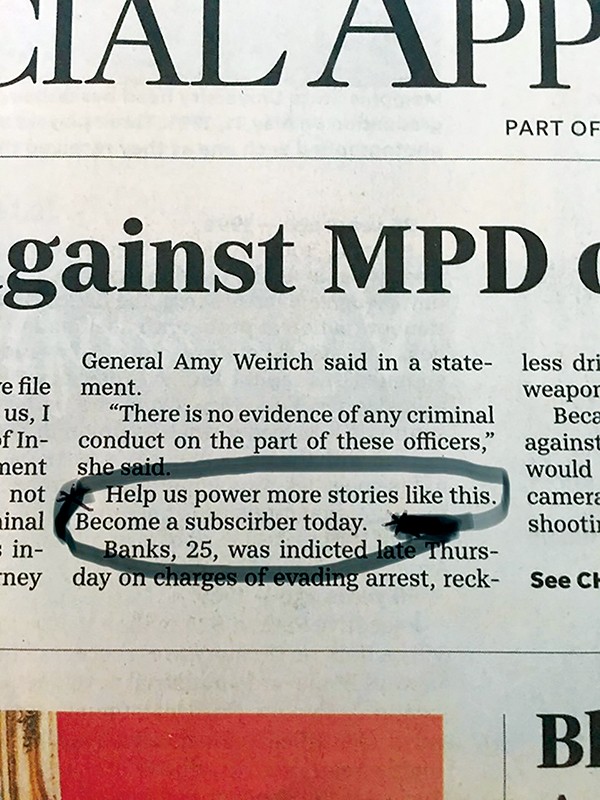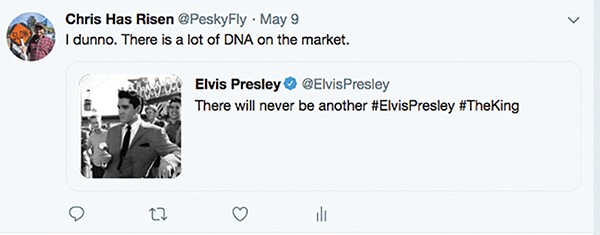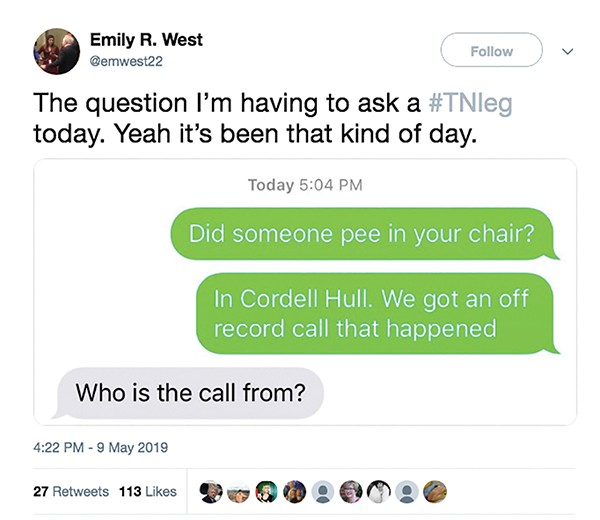Some would say it was the hell-naw-iest of hell naw headlines: “Sorry, Memphis, but Nashville does have the best barbecue.” It appeared in The Tennessean back in April, stirring up a hornet’s nest of hurt feelings, civic pride, and apple-wood-smoked talking points.
Could it possibly be true? Nashville has all the money and the glam, but Memphis … well, Memphis is Memphis: soulful and fun and ridiculous, just like our barbecue.
We had two ‘cue-perts speak in their city’s favor. Steve Cavendish is the former editor of the Nashville Scene and is leading the effort to launch a nonprofit news organization in Nashville. Chris McCoy is the Flyer‘s film editor and a barbecue savant. What results is a sort of meeting in the middle, where we all agree that barbecue is made for eating and not for arguing.
Meanwhile, this year, Memphis’ 200th, Memphis in May (MIM) decided to honor our city, instead of a country. Usually, the MIM-honored country has a team in the World Championship Barbecue Cooking Contest. This year, MIM assembled a team of super barbecuers. We check in on them.
…
Nashville Twang
Greetings, Memphians. I come in the name of peace and barbecue, two things you might not normally associate with Nashville.
We’ve been fighting a lot online about ‘cue lately, Twittering about who has the best this and Facebooking about who has the better that and calling each other names in the process. But our two cities have less of a problem with delicious smoked meat than they do with the newspapers that keep trying to stir up trouble.
Recently, a reporter at The Commercial Appeal took offense at a Nashville joint being selected over someplace from Memphis in a Southern Living list of top barbecue places. So she did what every click-chasing writer seems to do these days — she blogged about her indignancy. The digital weasels at The Tennessean, seeing her post trending on social media, had their own resident clickbait artist return fire.
You see, these Gannett hucksters make their money online by ginning up controversy and getting you to click and comment on it. And over what? Another list in a magazine we’re reading less and less each year?
They’re playing us, barbecue fans. What we should be concerned about is where to get our next great sandwich, wing, or rib. And if you haven’t been to Nashville in a while, it’s as good of a time as there has ever been to eat great barbecue. Is it better than what you have in Memphis? I’m not here to say things like “Rendezvous is criminally overrated,” I’m here to invite you to dinner. Here are five places you shouldn’t miss and what they do best:
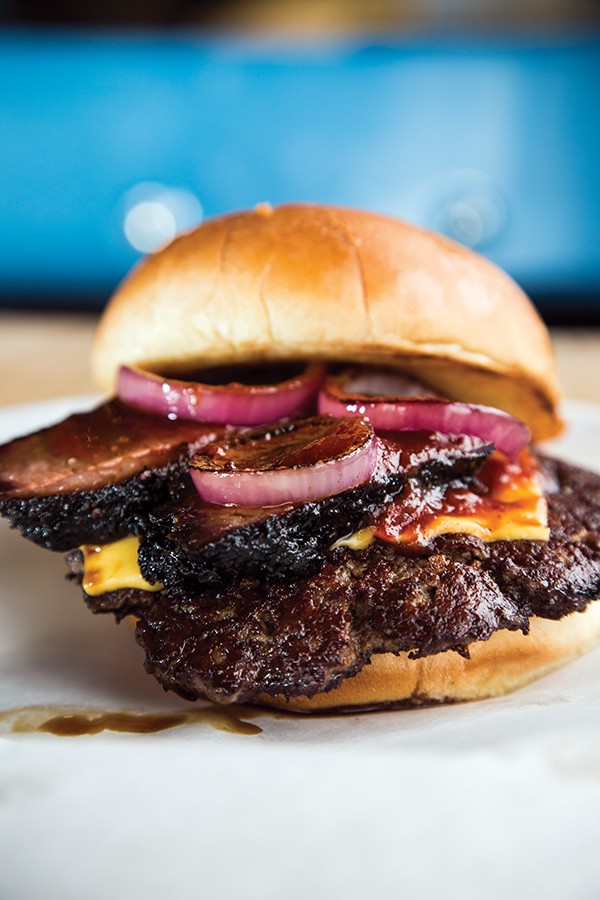 Courtesy of the Nashville Scene
Courtesy of the Nashville Scene
Martin’s
Martin’s
Most Nashville barbecue has roots in the same traditions that Memphis has made famous. For Pat Martin, who grew up in West Tennessee, that means the smell of whole hog hits you in the face as you walk into one of his many locations around town. The near-perfect pulled pork sandwiches of Martin’s — topped with slaw, of course — have that deep umami mix of smoke and sweetness that makes every bite satisfying. Martin started with an original joint in Nolensville and then peppered the area with five more places, including a two-story temple to pig Downtown that has become the go-to destination for many folks pregaming a Predators or Titans game. Martin’s redneck tacos (meat, slaw, and sauce on top of a hoecake) are a fine alternative to the traditional sandwich, and every time I’m in there with a group, I order one of his thick pieces of bologna and slice it up for everyone. It’s charred on a griddle and topped with pickles, onion, and mustard and there are never, ever any leftovers.
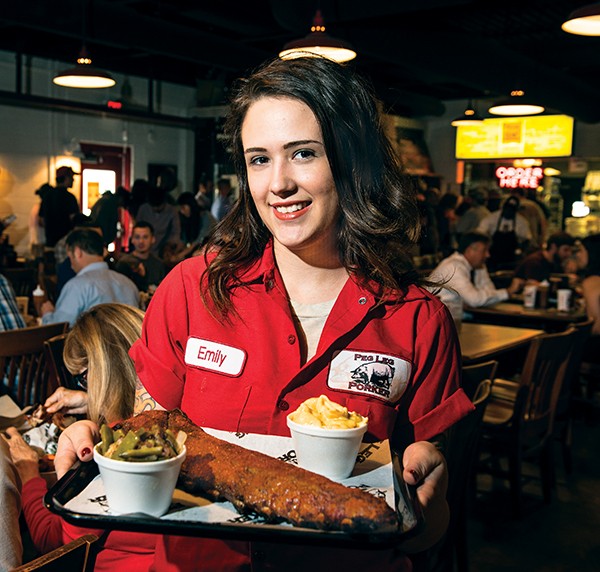 Courtesy of the Nashville Scene
Courtesy of the Nashville Scene
Peg Leg Porker
Peg Leg Porker
Carey Bringle, like Martin, has deep ties to the western grand division. After years of success on the pitmaster circuit, including a third-place finish at Memphis in May, he opened his own place near Downtown in the Gulch in 2013. But instead of adding more stores, Bringle built straight up to create a three-story tower complete with an apartment on top. And while his place does some great things with pork shoulders, Peg Leg Porker’s best feature are the ribs, dry-rubbed racks of tender goodness a la the version Charlie Vergos made famous. I’d stack them up against anyone’s. The restaurant’s name comes honestly — Bringle lost part of a leg to bone cancer in his youth — as does the decor of white cinder block and polished concrete. It’s like stepping into the past. If chicken is your thing, his smoked, Springer Mountain yardbirds are scrape-off-the-bone delicious and come with a side of Alabama white sauce that’s also the perfect accompaniment to French fries.
Gambling Stick
For the longest time, I have believed that it was near impossible to get great brisket on this side of the Mississippi. Kansas City? Tulsa? Austin? Dallas? Sure. Tennessee? No way. The cut of meat is too finicky and, besides, our tradition has been pig (unless you’re one of those freaks in central Kentucky that insists on barbecuing mutton). Then the guys at the Gambling Stick changed my mind. Located in the East Nashville parking lot of the best meat shop in town, CIA-trained Matt Russo turns Porter Road Butcher’s immaculate beef into amazing, tender brisket. The simple equation — dry rub plus cherry wood smoke — yields the best thing you will find on this side of the Texas border, and the burnt ends make for some truly decadent baked beans.
Slick Pig BBQ
I grew up driving around during summers with my dad, an insurance salesman, and we hit every meat-and-three and barbecue place between Covington and Cookeville. Not long after moving to Murfreesboro in the 1990s, he called me up to rave about a place called the Slick Pig and the best wings he had ever eaten. I’m not sure what the father-and-son team of Jerry and John Robinson marinate those wings in before they go on the smoker, but they come out blackened, lacquered, and perfect. Every bite is a little bomb of flavor. After trying these, you will have a hard time going back to standard hot wings. Well worth the 30-minute drive south.
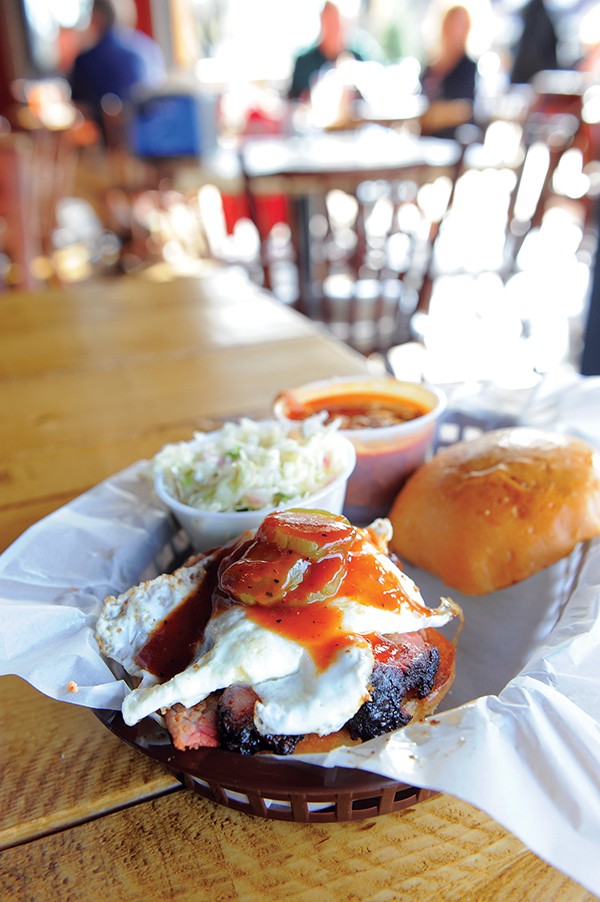 Courtesy of the Nashville Scene
Courtesy of the Nashville Scene
Edley’s Bar-B-Que
Edley’s Bar-B-Que
When the Nashville Scene held a bracket-style sandwich contest a few years ago, I put my bet on the Tuck Special, a fixture on the menu at Edley’s Bar-B-Que since it opened in 2011. It is decadence on a bun: layers of smoked brisket are topped with pimento cheese, pickles, red sauce, white sauce, and an over-easy egg. My friend Ashley describes it as being “like Whitesnake or US Weekly, it’s bad for you and embarrassing to consume in public.” Christ, it’s good. Traditionalists are sure to be horrified, but it’s their loss. Pro tip: You can get Edley’s wonderful banana pudding as a side item instead of as a dessert, making this just about the richest meal in town. — Steve Cavendish
…
It Came from Memphis
People of Nashville, I send you greetings from Memphis, Tennessee, the country music capital of the world!
See how silly, how completely out of touch with reality, that sounds? The Memphis-Nashville rivalry is also silly, and counterproductive. The people of the state’s two biggest urban areas have much more in common than we have differences. We’re all just trying to make a living in a fast-changing, mid-sized Southern city. Let’s not allow those who do not have our best interests at heart to divide us over the narcissism of small differences.
Which brings us to the silly thing we’re supposed to be fighting over, barbecue. Specifically, slow cooked barbecue pork. The truth is, as Anthony Bourdain once pointed out, cultures all over the world figured out thousands of years ago that the tastiest way to eat a pig is to cook it slowly over low heat. In Hawaii, they bury the pig in the sand with hot coals and let it get acquainted with itself. Here, we cook swine over indirect heat, using smoke to impart the meat with a distinctive flavor. At the risk of sounding like the arrogant loser Memphian who exists in the Nashville imagination, our way is the best way.
Or is it? This clickbait brouhaha has shaken my fragile Memphis arrogance. I needed to reconnect with our source of civic culinary pride. This is my investigative journalism duty, not just a way to get the paper to pay for three lunches.
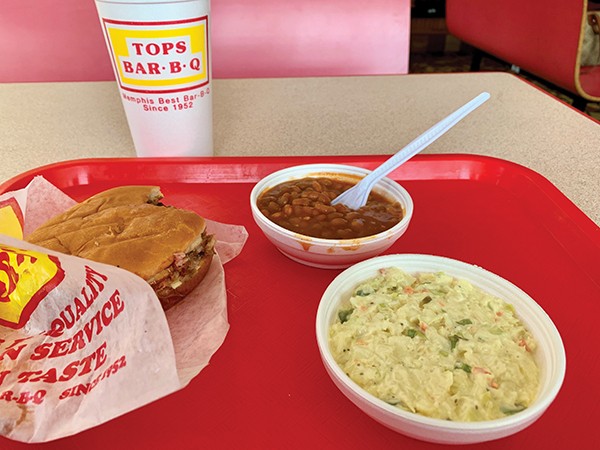 Chris McCoy
Chris McCoy
Tops Bar-B-Q
I stand in the parking lot of Tops Bar-B-Q, buffeted by sound waves. Next to me is a tall man whom I deduce from the badge on his belt is a police detective. We watch a helicopter ambulance land on the roof of Methodist Hospital in a stiff crosswind. “That guy’s got a tough job,” I say, and the detective agrees.
Tops is fast food, but it’s not a late-stage capitalist branding playground. On the walls are faded pictures of Elvis, and an American flag hangs in the window. The detective, who clearly has a lot on his mind, says when he was growing up, his father used to be a dedicated backyard barbecuer. I tell the detective that my job is to explain how Memphis barbecue is better than Nashville. “That sounds like an easy job,” he says.
Last month, Tops Bar-B-Q announced a new ownership group, who took pains to emphasize their commitment to keeping tradition alive. Restaurateur Tiger Bryant called it a “special institution in Memphis … a true gathering place where people from all walks of life — of all ages — come to enjoy.”
A businessman with a bluetooth headset chooses fries to go with his pork-covered Tops burger, as smartly dressed young men throw around terms like “systems integration.” An older married couple sits in comfortable silence. Two middle aged women are catching up over a pair of sandwiches and Lay’s chips. “That baby’s got enough onesies!” one exclaims, and they both laugh.
I choose the regular pork sandwich with beans and slaw. “You want slaw on it, right?” the young lady behind the counter drawls. It’s not really a question.
The sandwich is modest perfection. The key to great Memphis barbecue, as in most things, is balance. The meat is sweet, smoky, and spicy, all at once, in pleasing proportions. The slaw on the sandwich is mostly a texture thing for me, a little contrast, but it also balances out an excess of spicy sauce.
At $7.59, the meal is less expensive than most fast food, and I actually feel good after I eat it. As I walk to the parking lot, I tell two of my fellow diners my mission. They scoff at the assertion that Nashville barbecue is in the same league as Memphis’. “We started it, they copied it, that’s the truth,” one says.
As I start my car, one of my new friends gives me the “roll down your window!” signal. Being true Memphians, they want to tell me about their favorite barbecue spots: A&R in Hickory Hill. The Neely’s on Winchester. Arnold’s on Shelby Drive.
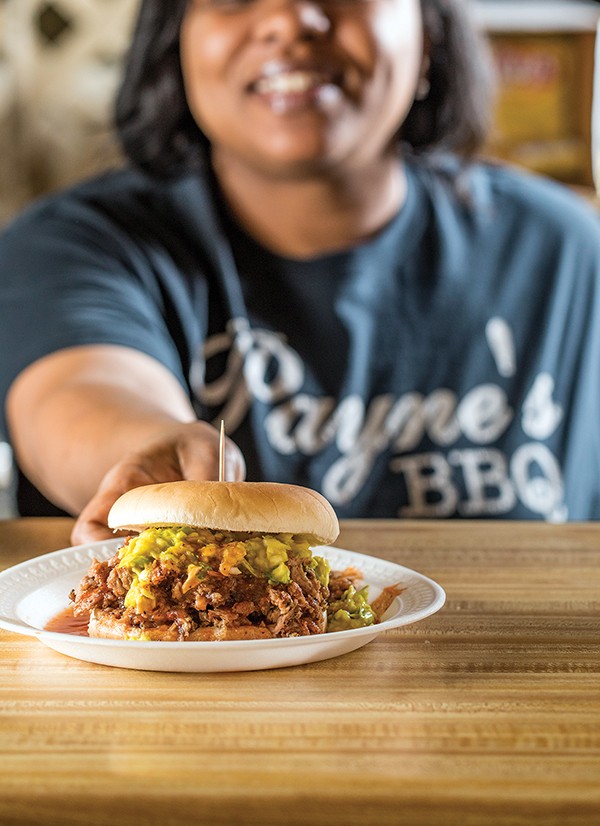 Justin Fox Burks
Justin Fox Burks
Payne’s BBQ
The parking lot of Payne’s on Lamar is crowded even at 2 p.m. If your idea of a great dining experience is a long-term real estate play cleverly disguised as a hip, yet rootsy restaurant revitalizing a post-industrial space, know this: The look and feel those places are trying to emulate is basically Payne’s. Sitting at the red-and-white checker-clothed tables with a rib sandwich in front of you is a quintessential Memphis experience. It’s a sandwich in name only — the white bread’s function is not to contain the meat, but rather to act as an edible napkin to keep your fingers clean as you slither the thews from the bone.
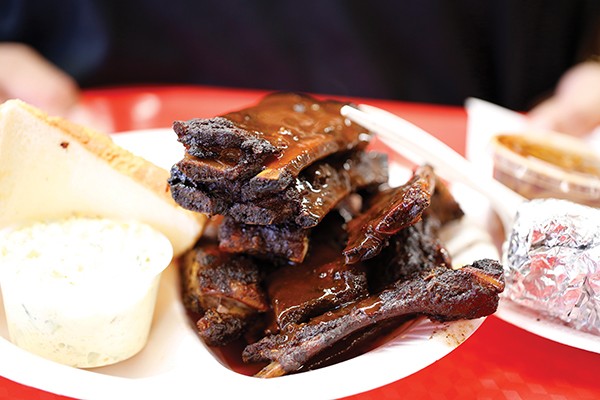 Justin Fox Burks
Justin Fox Burks
Cozy Corner
At the Bar-B-Q Shop on Madison, Eric Vernon diplomatically declines to comment on the Memphis-Nashville controversy — except to shout out Cozy Corner as another barbecue restaurant that “gets everything right.” We start with a Memphis creation, barbecue nachos. The ballpark food was made popular at AutoZone Park, but this plate is elevated by the Vernons’ pulled pork. Then, the blockbuster main course. Frank Vernon’s glazed rib recipe must be experienced to be believed. There’s nothing like that whiff of wood smoke that wafts up as the rib slabs hit the table. The slightly crunchy, caramelized exterior contrasts perfectly with the juicy, tender interior. As we dig in, the dining room fills up with families. It’s graduation day.
Eric’s dad Frank Vernon was a backyard pitmaster turned struggling restaurateur. He was tapped by the owner of Brady and Lil’s, the favorite barbecue joint of the Stax Records, to carry on their legacy. Mr. Brady and Vernon sealed the deal by signing a Bible. Their story is typical of so many black families in Memphis who clawed their way into the middle class by devoting themselves to perfecting barbecue — and thus preserving a vital part of African American and Southern culture. The cuisine sustained the people and reached across racial barriers. If we can dine together at the same checkered tablecloth, are we not all humans, in this thing together? That’s what barbecue is to Memphis. Not a new foodie frontier to conquer, or a flag to capture, but a pillar of the community, a tangible example of who we are. — Chris McCoy
…
Team BBQ
Yeah, Tony Stark may have that fancy Iron Man suit, but I heard his pork shoulder ain’t worth a damn.
A Memphis superhero makes good barbecue. Period. And when the whole world descends upon Tom Lee Park, we’ll need an elite team of ’em to defend our fair city. Good news. We got one.
Memphis in May (MIM) honored Memphis this year for the city’s 200th birthday. So, the honorary barbecue team is from Memphis. Imagine how hard it would be to pick that elite team of barbecue all-stars.
Walter Crutchfield made the cut. You’ll know him from Crutchfield’s BBQ on Hollywood or from his recent appearance on Food Network’s Chopped.
We caught up with another part of the team, a battalion from Hog Wild — Real Memphis Barbeque & A Moveable Feast Catering — John Oborne, executive chef; John Caldwell, sous chef; and Schuyler O’Brien, chef de cuisine. Here they come now, slo-mo walking through a fog of barbecue smoke, tongs in hand.
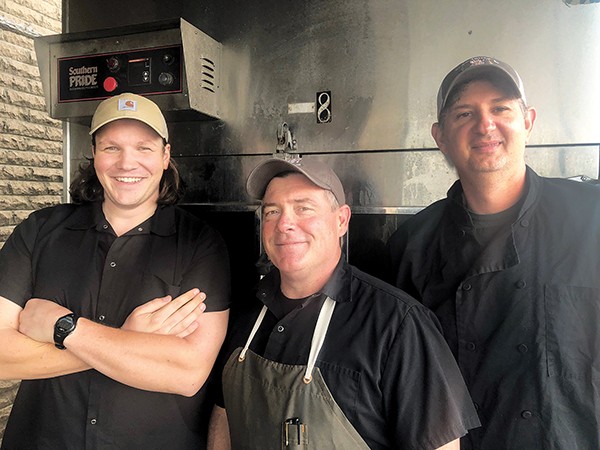
Schuyler O’Brien (l to r), John Caldwell, and John Oborne
Memphis Flyer: How did Hog Wild get together?
John Caldwell: Hog Wild and A Moveable Feast Catering have been in the Memphis market for 23 years this summer. [Company founder Ernie Mellor] started out by cooking catfish in the back of his truck. He had some skill on a barbecue rig, and it exploded from there. We think we’re the premier caterer in the Memphis area, and we love what we do.
Ernie, because he cooks on a competition team, is not a member of the — and I’m doing air quotes because we don’t consider ourselves this — the all-star team cooking at the Memphis in May tent.
MF: Have you competed at Memphis in May in the past?
JC: Yes, but it’s the [Hog Wild] team not the company, if that makes sense.
MF: It does. What is the Hog Wild company’s barbecue philosophy?
JC: You’re going to hear it all week long — slow and low.
MF: Talk about your cooking methods.
JC: We’ve had a line of retail and dry rubs available for years. We lay the dry rub on their shoulders, let them sit in that love for a couple hours before it goes on the smoke. Run [the shoulders] at about 210 for 16 hours and then that’s it. It’s a feel thing.
You’ve got to have a little touch, and John Oborne is the master at it. He can tell you when they’re done just by opening the door on the smoker.
MF: All right, well, John, tell me about it.
John Oborne: It’s a process. It takes a long time. You can’t rush good barbecue.
MF: Even though y’all put it in air quotes, you have been picked for the all-star team. It’s got to feel pretty good.
JC: We can’t tell you how excited we are. We are slammed busy. But every day after we finished our shifts and all the parties have gone out and we completed our parties, we’re sitting down and taking notes about the things we want to do for the all-star team, and how much fun that’s going to be and how excited we are about being selected, and representing Memphis on its 200th anniversary. That’s a big deal. — Toby Sells
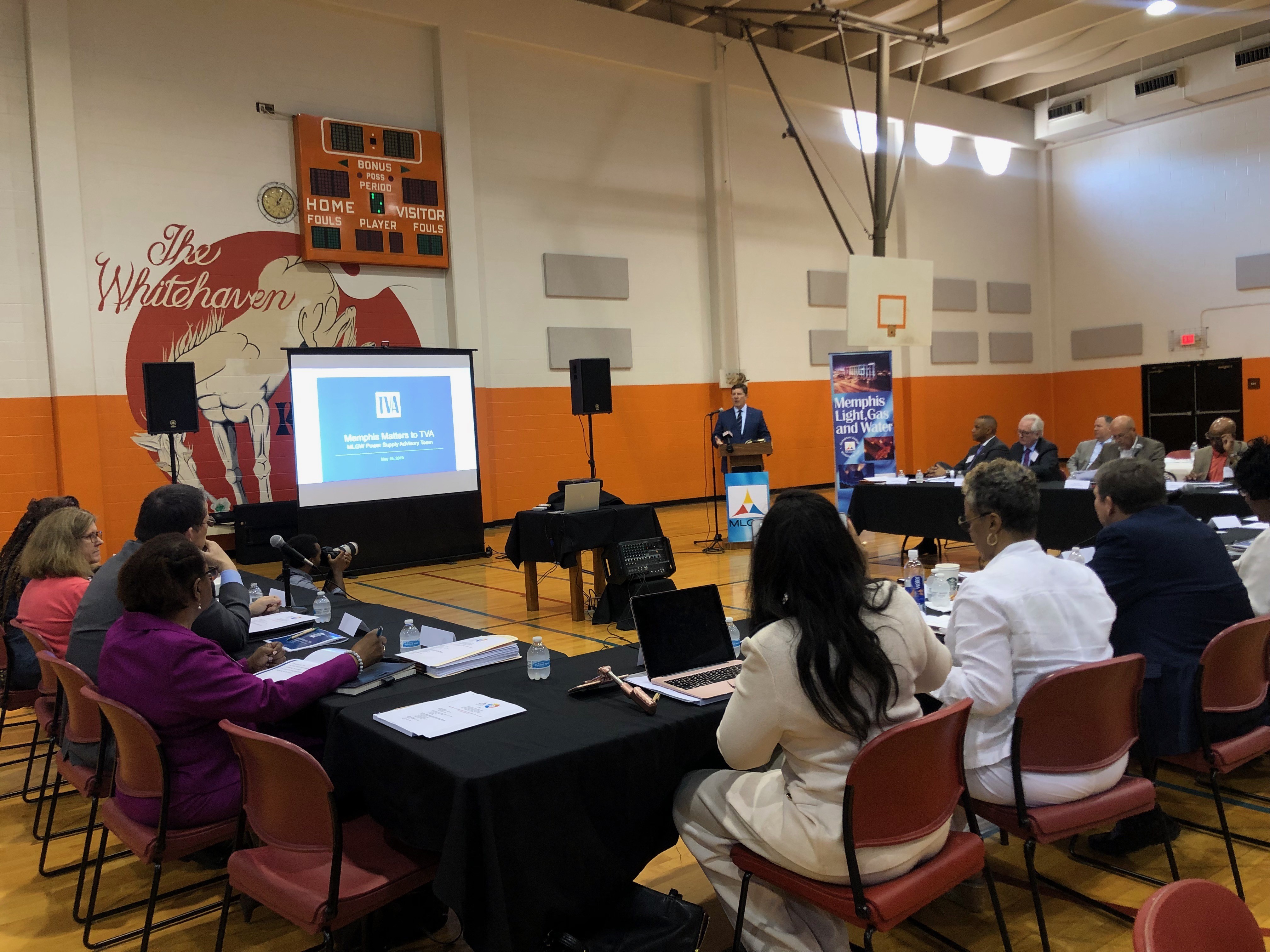 Maya Smith
Maya Smith 
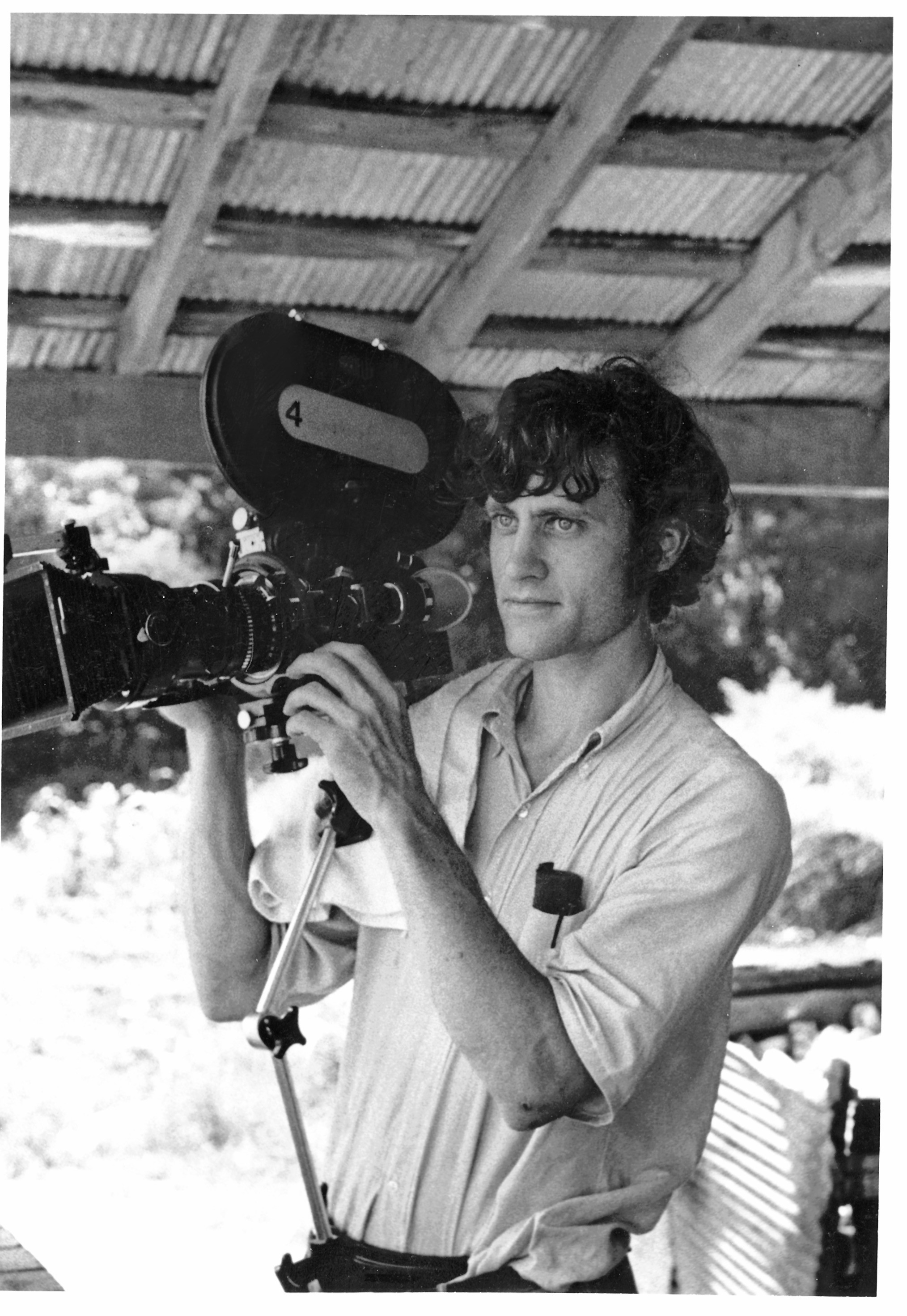
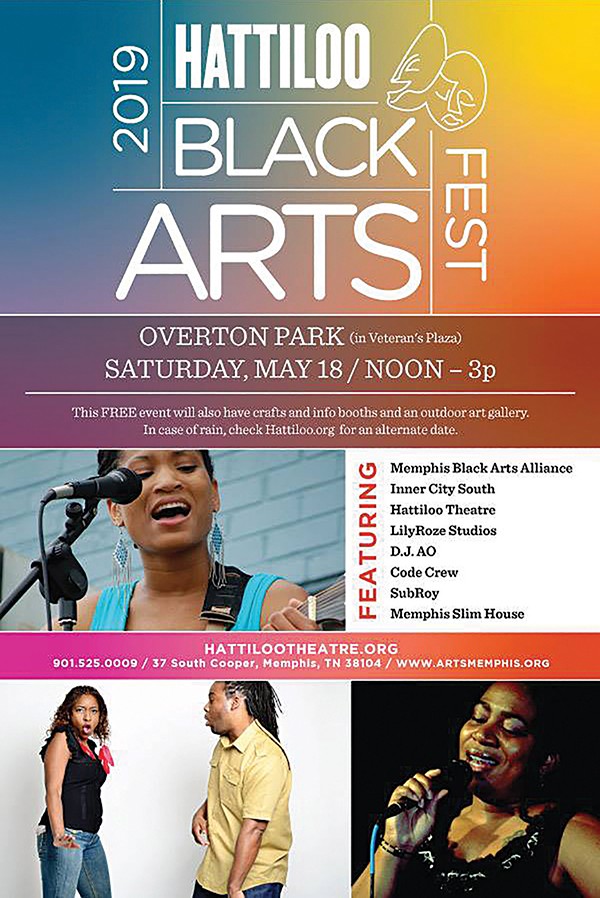
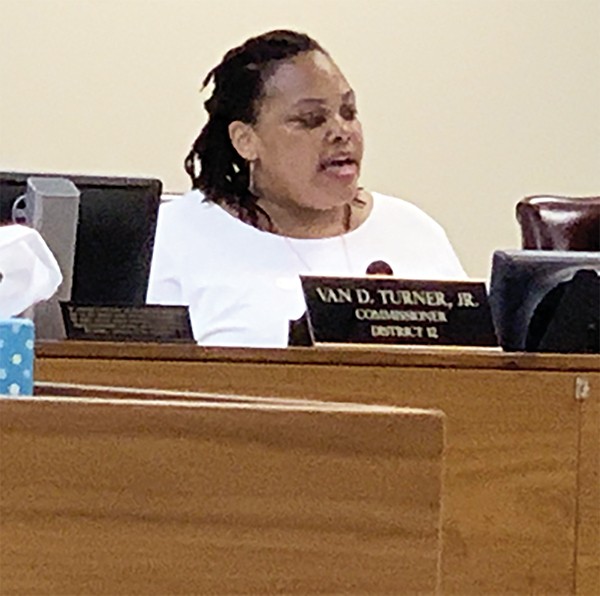
 Courtesy of the Nashville Scene
Courtesy of the Nashville Scene  Courtesy of the Nashville Scene
Courtesy of the Nashville Scene  Courtesy of the Nashville Scene
Courtesy of the Nashville Scene  Chris McCoy
Chris McCoy  Justin Fox Burks
Justin Fox Burks  Justin Fox Burks
Justin Fox Burks 
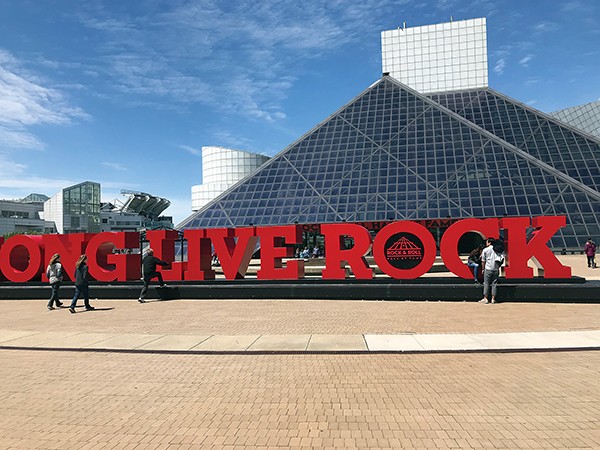 Bruce VanWyngarden
Bruce VanWyngarden 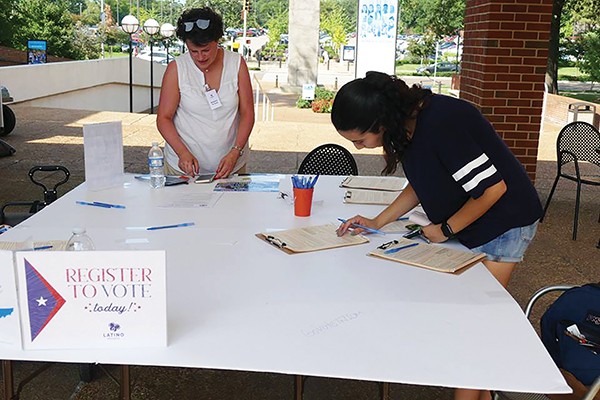 U of M/Facebook
U of M/Facebook  Justin Fox Burks
Justin Fox Burks 